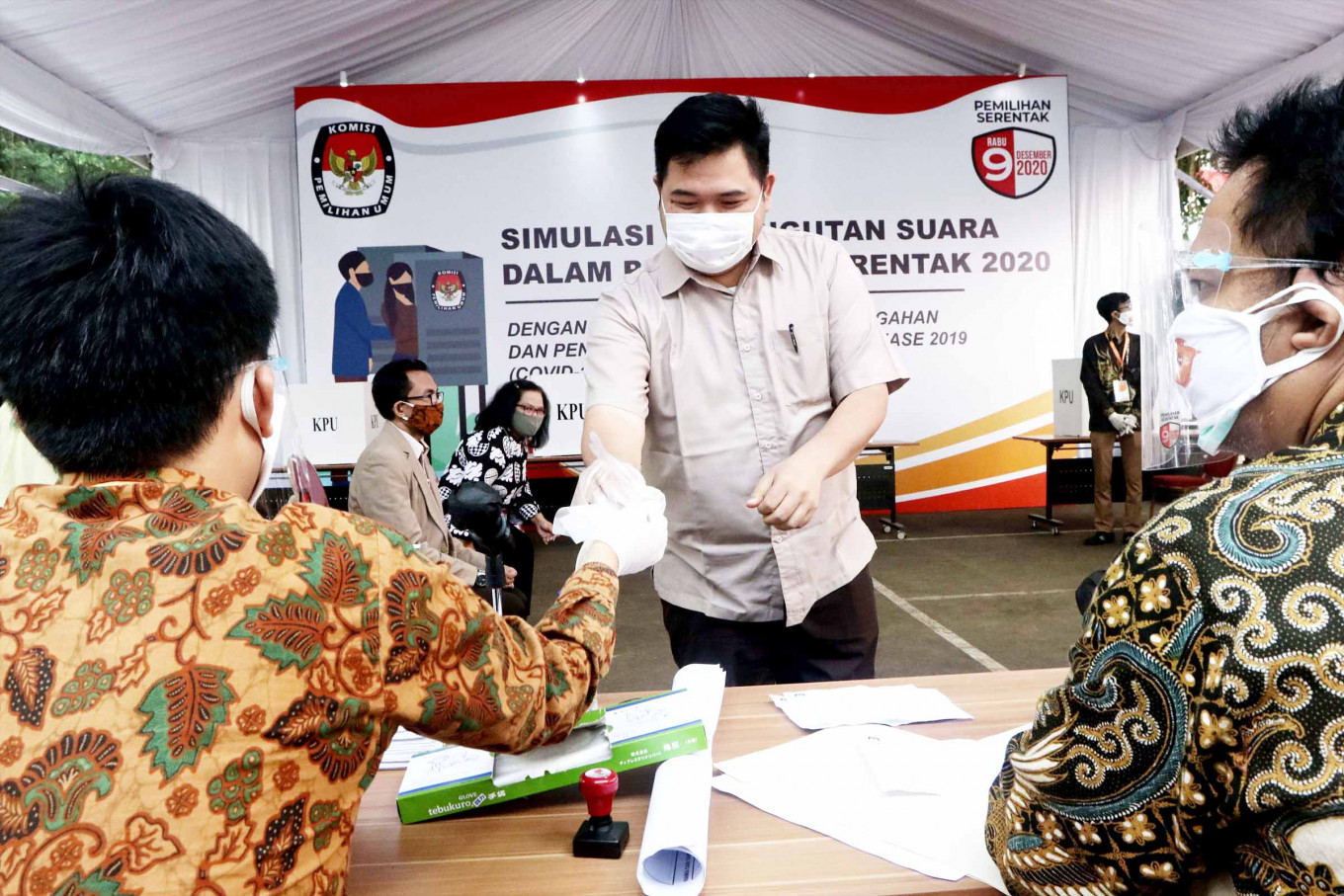Calls grow for ‘clear’ rules on acting regional heads
101 regional leadership posts to fall vacant in 2022.
Change text size
Gift Premium Articles
to Anyone

A
recent Constitutional Court ruling has added urgency for the government to issue a regulation on guidelines for appointing acting regional leaders, as several regional administration posts are set to be vacated starting in May.
On Wednesday, the court, citing its decision in a previous case, called on the government to issue a technical regulation to provide “measurable and clear mechanisms” as a way to make sure the appointment of acting regional heads by the government does not ignore democratic principles.
“The government needs to consider issuing an implementing regulation to follow up on Article 201 of Law No. 10/2016 on regional elections, so that there are measurable and clear mechanisms to provide guarantees that the appointment of acting [regional leaders] is open, transparent and accountable,” Constitutional Court justice Enny Nurbaningsih said on Wednesday.
The court made its decision in a judicial review petition filed by six individuals in January, including a lecturer, a student and a teacher, who live in Jakarta and West Java. They demanded the court issue a ruling ordering the government to extend the term of office until 2024 of regional heads whose terms end in 2022 and 2023.
The petitioners claimed that the 2016 Regional Elections Law, which allows the government to unilaterally appoint acting regional leaders to run vacated mayor, regent governor posts, had undermined their democratic right to elect their leaders. Their concerns stemmed from the fact that under the prevailing regulation, the upcoming acting regional leaders would hold on to their seats for a relatively lengthy period until the 2024 elections.
A total of 101 regional leader seats will become vacant in 2022, including governorships in Jakarta, Banten and Aceh; while 154 mayoral and regency posts and 17 gubernatorial positions will become vacant in 2023, including in the country’s most populous provinces: West Java, East Java and Central Java.
Read also: We will hold elections in 2024: Jokowi
The prevailing law stipulates that echelon I officials of central and regional administrations – such as directors general and provincial secretaries – can be assigned as acting governors until the regions in question have definitive leaders elected in the 2024 polls, while echelon II officials – like city or regency secretaries – can be assigned as acting regents and mayors.
Executive director of Regional Autonomy Watch (KPPOD) Herman N. Suparman said a technical regulation could be the starting point for public participation in monitoring the selection and appointment process of acting regional heads.
He went on to add that such a regulation was urgently needed, considering the prevailing rule did not stipulate detailed mechanisms and that many regions would soon see the terms of their regional leaders expire.
“The regulation needs to be issued in April at the latest because there will be several regional heads whose terms of office will expire in mid-May,” Herman told The Jakarta Post on Thursday.
There are five provinces in which the governor and deputy governor terms are set to expire on May 15, namely Banten, Gorontalo, West Sulawesi, Bangka Belitung and West Papua, according to Home Ministry data. A week later, six cities and 37 regencies will also see the terms of their mayors and regents expire.
A survey conducted by Kompas daily on March 7-12 found that 56.5 percent of respondents believed the appointment of acting regional heads by the government, in this case coordinated by the Home Ministry, had not been carried out in a transparent manner.
Read also: Acting regional leader appointment sets off debate
House Speaker Puan Maharani urged the government to conduct a transparent and thorough selection process of candidates for acting regional heads, emphasizing the importance of the government picking acting leaders with intimate knowledge of the regions that they will lead.
She also said that the performance of the acting regional leaders should be evaluated periodically, adding that proper measures should be taken if some leaders perform poorly.
“If, going forward, the performance of the acting regional leaders is deemed unsatisfactory, or even they are found to have abused their power, [they] should be immediately evaluated and [punished] according to the prevailing rules,” Puan, a member of the Indonesian Democratic Party of Struggle (PDI-P) executive, said.









